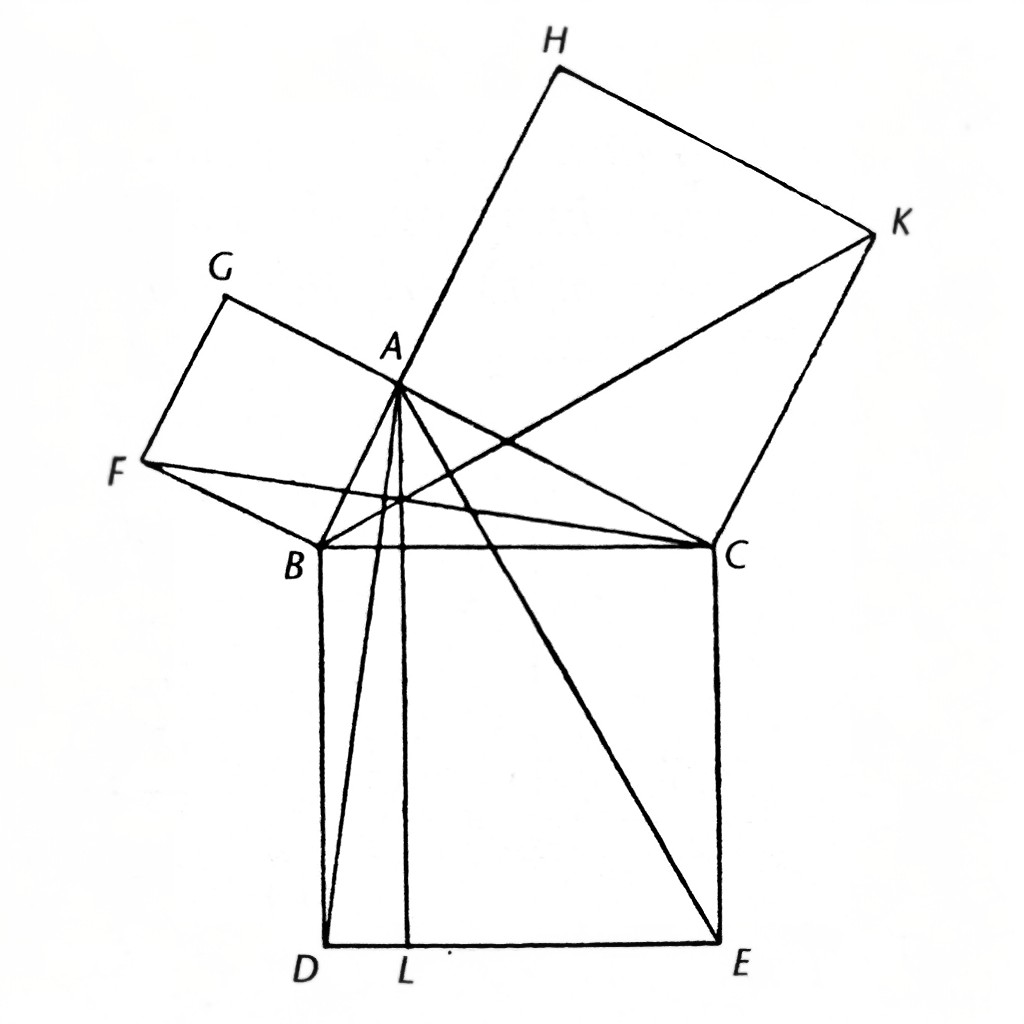Christian theologians and philosophers spent over a thousand years trying to reconcile god being omniscient, omnipotent, and omnibenevolent, the existence of evil, our having free will, etc. They never could really do it, because it doesn't make sense (IMO). The tripple omni god thing really comes outta Greek philosophy and doesn't really fit in with what's in the bible at all.
I'm not a Christian, but really the only good answer is that it's a mystery. That sounds kinda like cope and I think it probably is just that for some. But I don't think it necessarily is, there is a deeper meaning to mystery as well.
It all makes sense if you believe that God is an evil demiurge that should be opposed at all costs
Gnostic Christians are the only Christians whose theology makes any sense
I'm excited for Dirt_Owl's JRPG protagonist arc.
To whatever portion of this post is a vent: Fuckin' right?!
And to whatever portion is actually asking: The dissonance is an important part of American evangelicalism or whatever you like to call it. End result is that God's plan gets to be whatever an authority in your life decides it is
One theory is that of the "Happy Fault" (Felix Culpa). That is, sin, the fall etc were intended and in some sense "good", in that they allow for a process of repeated breaking and reconciling with the godhead, each time reconciling with greater and more sophisticated knowledge of the divine will.
Prayer and its effects act as a facilitator for this process, ie. God intends for the process of prayer to happen as it is a process of introspection and reconciliation, and as one reconcilies with the godhead, so does ones desires reconcile with the plan of god.
It's always a hard line to walk, especially if you're trying to avoid a shitshow in the comments.
I don't have much patience with academic theology because of how much of it was used to waste my time growing up, but my impression from that time is that there's no shortage of theological theory on any topic. My experience was "non-denominational", which in practice meant the standard Evangelical, non-codified biblical literalist, calvinist, Pentecostal mysticist suite
So for that particular allegedly-decentralized kind of Christianity, basically all theology was acceptable by default unless it bucked a core part of our orthodoxy such as mandatory queerphobia
Yeah, there have been theologians for hundreds of years and some of them have talked about exactly this issue! I even read some in school, but, of course, I don't remember who it was because it's been a decade and I'm an atheist.
So I'll give a list of theologians that I know I've read, and that at least will give you a starting point for who to look at if you'd like to do more research and maybe find some passages.
St Thomas Aquinas is possibly the most famous theologian ever. I kind of hate him though and wouldn't really suggest him except as a last resort.
St Augustine I really, really liked. He is the theologian who was closest to convincing me to convert to christianity. He's very approachable.
St Anselm I think was the guy who came up with an absolutely ridiculous "proof" of the existence of god that I still sometimes think about and chuckle. The "ontological argument" I think it's called. But I seem to remember he's a bit of a one-trick pony, so probably he didn't write anything on the omniscience of god.
Montaigne, Pascal, and Descartes aren't exactly theologians, but they all wrote about religion, and in a very specific "enlightenment man of science" kind of way that's pretty interesting.
Spinoza was fun, but I remember him being rather confusing. He was also more into politics than purely religion, if I remember right.
Kierkegaard was also really, really interesting. His thoughts on the (almost) sacrifice of Isaac were fascinating, and might be relevant to this question, actually.
And then there's Paradise Lost, which is fiction, but a very philosophical kind of fiction. It's extremely misogynist, like, I'm talking, Eve can't understand cosmology unless Adam is the one explaining it to her misogynist. Adam and an angel talk for hours while Eve wanders around preparing food for them, it's kind of gross. But, the bits where Lucifer is talking about his fall were super duper interesting, and possibly relevant here. Did god know what Lucifer was thinking and planning? If so, why did god let him go through with it? If not, is god really omniscient? And, another little wrinkle, some theologians and philosophers (I don't remember if Milton is in this camp) think humans have free will, but angels do not. Which is, well, huh, I don't even know what sentience looks like without (apparent) free will, you know?
I don't know if any of these suggestions help! But know that you're not the first to be very confused by god and his omniscience. It's an interesting philosophical problem, absolutely. (Of course, the atheist answer is extremely easy: god doesn't fucking exist, there is no greater "plan", each of us must find our own path through life and imbue that path, and that life, with meaning ourselves.)
Huh, I much prefer Aquinas to Augustine. Augustine always comes across as a self hating misogynist asshole.
For a more modern Catholic perspective, De Chardin has become widely accepted, at least at the core, by Catholics both conservative and progressive
Oh, is Augustine a misogynist too? The self-hatred I picked up on, the misogyny I missed, because I was much, much less sensitive to it a decade ago. Ah well, live and learn, and maybe don't read Augustine after all!
I've never heard of De Chardin, I think he must be too recent for the school I went to. It's one of the real downsides of doing a "classics" or "western cannon" sort of program, you never get to read anything from the last 50 years or so.
De Chardin gets a lot of traction in transhumanist circles since he helped develop the concepts of the Noosphere and the Omega Point. He's in some ways the Catholic counterpart to Russian Orthodox Cosmists.
Unfortunately none of them read him and those that did misinterpreted his entire thesis far too literally
Spinoza was fun, but I remember him being rather confusing. He was also more into politics than purely religion, if I remember right.
Spinoza is a wonderful philosopher, if you don't read him directly as a first approach. His formatting is weird, and doesn't quite follow a through line. Reading philosophers who have read all of Spinoza and can write about the key concepts, or how they are present through his work is a much better way to get to know him.
My recommendation to get started is Arne Naess' writings on Spinoza and Ecology.
I'd bet that the catholic church has something on it. They have the most continuous study of Christianity. IMO, catholicism tends to be more sourced than protestants or evangelicals.
And to whatever portion is actually asking: The dissonance is an important part of American evangelicalism or whatever you like to call it. End result is that God's plan gets to be whatever an authority in your life decides it is
I would expand this to say not just an important part of American Evangelicalism but the entire core necessary and defining component in my mind of the power structure part of "The American Civic Religion(tm)" and the principle piece from which control structures that allow American Protestantism (at least since Jerry Falwell) to operate with the same purpose that Catholicism did in Rome, that is, to functionally reign in all dissent from "Conservative Christian Doctrine" and ensure that this vital conservative political power structure can never again be divorced from the specific beliefs of their target "audience's" faith.
Religious debates around "God's plan, predestination, determinism and so on can get really really convuluted. Look at Calvinism for example.
I was raised Catholic so I'll try my best to represent that perspective, which is not my own - sorry in advance if I say anything offensive to anyone.
The first point to clarify is the compatibility between omniscience and free will. They may seem incompatible, but really it's no different from looking back at history - I know that Napoleon invaded Russia, but he was still free to choose whether or not to when he made the decision, and the fact that I know which decision he made doesn't mean I'm the one that made the decision. God exists outside of time, so it's basically the same thing. Any questions about timey-wimey stuff may be directed towards the sign that says, "The Lord works in mysterious ways" (OOC this fucking jumble of sticks is foundational to so much theology and falls apart if you look at it from anything but that specific angle)
Does God change his mind when we pray? I actually had to look this one up:
God does not change his mind in response to our prayers or our actions. Though Scripture sometimes speaks as if he does, this language is figurative, not literal. If he did change his mind, that would mean that God had imperfect knowledge.
However, the fact that God does not change his mind does not mean that we should refrain from praying. God, in his perfect wisdom, has made some things we need contingent on our praying for them. He does this so that we may turn our hearts to him, rely on him, trust in him, and grow in the virtues of faith, hope, and charity.
So God has already planned around you praying, but if you didn't pray it would cause something else to happen, except that he already knows that you're going to freely choose to pray, unless you don't in which case he already knew and planned around that. God's plan is definite and unchanging, but we only discover what it is when we freely make the choices he knew we would make.
How about sin? Well, first of all, everyone is a sinner because of original sin (OOC: which is another complete fucking mess developed by Augustine who cited a mistranslation as his primary biblical support for it) but also because it's virtually impossible to avoid committing it. Nobody "earns" their way into heaven by being a good person, and hell isn't so much a punishment God inflicts on you as it is a natural result of rejecting God, with the chief punishment of hell being eternal separation from God (wait shit I just called it a punishment oops).
Uhh ok lemme go full youth pastor and break out a pop culture analogy. Think of it like a Stephen Universe fusion. In the show, in order for two gems to fuse, they have to be in sync with each other, so they do a little dance before to represent that and if they vibe well enough they're able to fuse. Well, when you sin, you're not vibing with God so you can't fuse with him, but it's not so much that he's mad at you, it's that you, uhh, look this is a bad analogy but the important thing to understand is that everything is your fault.
But, there's Good News! The Good News is that God put in a secret exclusive VIP route to get into heaven even though you, as a bad person (I'm in character I'm sorry also IC this is true for everyone), deserve to go to hell. And that VIP route is called
Jesusgrace. Basically, instead of laying out a bunch of arbitrary, strict rules you have to follow like in the old days, God sends down an offer that just says, "Look, you want in or not?" and all you have to do is say "Yes!" But you have to really mean it, sincerely. And if you really mean it, sincerely, then you will of course have no trouble abiding by a bunch of arbitrary, strict rules.I should add that this "secret exclusive VIP route" is technically available to everyone, but some people, like say a Chinese farmer in 300 A.D, might have a little bit of difficulty hearing about it. For a long time, unbaptised infants were believed to go straight to hell because they never heard the word of God, and some Catholics still believe this, which is why Catholics are so anti-abortion. The official catechism statement is something like, "We don't know what happens to them, but we trust in God's mercy and wisdom." (OOC Augustine would probably throw a fit if he saw it, as iirc he came up with damned infants. IC, Augustine's position is and has always been completely consistent with the Church's teachings.)
So to bring it all back, what does it mean when people say, "God has a plan for you?" Well, first off, most people are not theologically rigourous Catholics so you can generally ignore everything I wrote. But, in this context what it means is that God has a plan which either involves you repenting and renouncing your sinful ways and going to heaven, or he has a plan for you to not do that and go to hell, and it's up to you to decide right now which one he already laid out in advance.
Free will is incompatible with an omniscient god, CMV
Omniscient isn't what boils my brain, it's the trifecta of omniscient, omnipotent, and omnibenevolent.
Well you've got thousands of years of theodicy to read through at least
Debateably, free will is compatible with an omniscient being, but I don't think it can be considered compatible with an omniscient creator. If I see all the possibilities laid out in advance, and I choose which of those possibilities to make happen, then I'm the one making the choice. It's like if I set up a Rube Goldberg Machine or a marble maze, I have put things in place specifically to control the path that the marble takes, and if I saw that the marble was going to go one way, I could build it differently to prevent that. If we are marbles (or rats, if you prefer) in a maze specifically constructed to guide us to a specific outcome by an all powerful being with exact knowledge of what conditions will cause what choices, then on what basis can we be said to have free will?
But if you're truly omniscient, you know which choice you will make. Hardly a choice at all!
Also raised a Catholic in religious group homes (essentially orphanages, group foster homes for kids who are never getting fostered) in Australia, and I agree with your entire wall of text and thank you for posting it so I didn't have to post something similar.
I also used to piss off several of the "staff" whose official position to "the children" was babies didn't go to hell until insert catholic goalpost but that whole concept of purgatory as a placeholder until we accept god or whatever, which always led to me arguing that I should remain unbaptized and as ignorant of the churches teachings as possible then until I go to purgatory and don't have to make the decision based on faith. (Not how it "works" but is an incredibly frustrating topic for any Catholics trying to keep things "kid friendly".)
Edit: They really REALLY didn't like you saying that spreading the churches teachings to, for instance, pacific islands people's etc, was (knowing they're imperfect humans) condemning souls to hell when ignorance covered them 100%.
Beat me to it. I think most serious Christians of any denomination believe that it basically doesn’t make sense and that you need to make a leap of faith in order to believe. God is like a dude and the rest of us are like insects, so how are we supposed to understand what he’s up to? He works in mysterious ways. Anyway, it’s a good thing none of this mystical nonsense influenced mainstream economic theory, swapping out “god” for “the market.” I mean, that would be ridiculous. That would mean that the people who consider themselves rational scientific atheist/agnostics are actually religious nutjobs who go way beyond those videos you might have seen of people writhing on the floor with gigantic snakes while babbling in tongues.
mystical nonsense influenced mainstream economic theory, swapping out “god” for “the market.”
Protestantism, and specifically Calvinism, were a mistake.

Protestantism is the only world religion I’m aware of which states explicitly that good works aren’t required for a reward in the afterlife. All you need to do is believe, and then hope for the best.
Ex Christian here. It's less about changing his mind, and more about formally letting him know your request. Prayer is also supposed to be communion with god, it's a two way street. It's not supposed to just be you asking for things, but also listening to what he has to say.
There's also obviously prayers of thanks, or even just talking to him about things in your life.
It's larger than Christianity, it's religion at large. Religions, even organized ones, aren't as organized as you're led to expect.
Religions are amalgamous. You're asking about the theology of the monks and how the layman's faith relates to that. That reaches across the layers, and while there are some attempted answers, I don't think you'll find them satisfactory or clear. In any case, you would have to learn some theology to understand them
For example, everyone knows that Buddhism is about nirvana, but in truth that is only expected for the most dedicated monks ready to give up their lives in an instant, not the laymen who are actually only expected to live moral lives, not even caring about nirvana until a future life when they're ready for it
The good ol' "our philosophical model can't explain this so we'll call it a paradox" approach.
It’s not supposed to make sense. It’s supposed to be an east to swallow catch all pill that you can always respond and it acquits you of the need to use your brain
I’m really impressed by all of these comments. This is truly a different place than Reddit and 4Chan.













